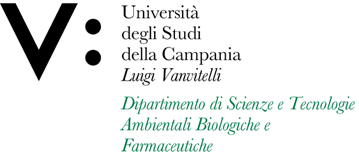MicÒl MASTROCICCO
Insegnamento di IDROGEOLOGIA AMBIENTALE
Corso di laurea magistrale in SCIENZE E TECNOLOGIE PER L'AMBIENTE E IL TERRITORIO
SSD: GEO/05
CFU: 6,00
ORE PER UNITÀ DIDATTICA: 48,00
Periodo di Erogazione: Secondo Semestre
Italiano
| Lingua di insegnamento | ITALIANO |
| Contenuti | La classificazione delle sorgenti |
| Testi di riferimento | Fetter C.W. - Applied Hydrogeology - McMillan |
| Obiettivi formativi | L’insegnamento si prefigge di fornire i |
| Prerequisiti | nessuno |
| Metodologie didattiche | Il corso è articolato in 30 ore di lezioni |
| Metodi di valutazione | L’esame consiste nel superamento, con una votazione di almeno 18/30, di una prova scritta dove lo studente, attraverso domande a |
| Altre informazioni | Lo studente potrà avvalersi del materiale didattico (dispense, esercizi, ecc.) messo a disposizione sul sito web di Ateneo. Il docente è disponibile per ricevimento studenti nei giorni indicati sulla scheda insegnamento e su richiesta inoltrata via email. |
| Programma del corso | La classificazione delle sorgenti (geologica, idrogeologica, qualitativa e quantitativa), captazione delle sorgenti, il regime di flusso di una sorgente e la capacità di laminazione, curva di efflusso e curva di esaurimento, modello esponenziale di Maillet, i volumi e le riserve di una sorgente, indice di variabilità |
English
| Teaching language | Italian |
| Contents | Spring classification |
| Textbook and course materials | Fetter C.W. - Applied Hydrogeology - McMillan |
| Course objectives | The course aims to provide the basic concepts for proper management of water resources. |
| Prerequisites | none |
| Teaching methods | The course is divided into 30 hours of theoretical lessons and 18 hours of practice. |
| Evaluation methods | The exam consists of a written test where students will have to apply the knowledge acquired throughout the course, answering to open questions and solving exercises. The test is successfully solved with a mark of at least 18/30. Passing the written test allows to access the oral test |
| Other information | The student will be able to use the teaching material (handouts, exercises, etc.) made available on the University website. The professor is available for receiving students on the days indicated on the teaching form and on request sent by email. |
| Course Syllabus | The classification of springs (geological, hydrogeological, qualitative and quantitative), usprings flow regime, springs characteristic curves, Maillet's exponential model, volumes and reserves of a spring, index of variability, coastal springs |








